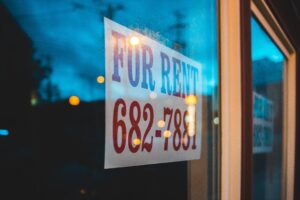Is Your Business Aware of Age Bias?
Here’s a quick pop quiz: Which one of these examples is considered age discrimination in employment?
- Ryan, who just graduated from University, recently had an interview with a Real Estate Firm. The interview went well, and Ryan’s resume was very impressive. But he was not hired due to the fact the Real Estate Firm was concerned he was “too young” and would “quickly move onto another job”.
- Thomas, who is 61-years-old, was a quality manager at a car dealership for many years until the 2009 recession. Since then, he has been doing odd jobs to get by. For over three years now, he has been actively seeking a job. Thomas has aced multiple phone interviews and has been told many times he has an impressive resume. But when he does an in-person interview, he is quickly dismissed — he looks “too old” for the job.
- An accounting firm posts an advertisement on LinkedIn for someone to join a “young, dynamic team”.
Trick question — these are all examples of employment age discrimination. As an employer and/or business owner, it is crucial to take measures to prevent discrimination from happening, rather than just respond to complaints that arise. An employer needs to take proactive steps to eliminate discrimination. You have to be educated on local and federal laws that could put your business at risk for litigation. In my fourth EPL course, I will be discussing age discrimination and new evidence of age bias in hiring.

What is the Age Discrimination in Employment Act?
The Age Discrimination in Employment Act of 1967 (ADEA) is a law enforced by the EEOC that protects against discrimination against applicants and employees over the age of 40. This problem is still common and widespread today. A New York Times article highlighted new evidence of age bias in hiring.

“The problem is getting more scrutiny after revelations that hundreds of employers shut out middle-aged and older Americans in their recruiting on Facebook, LinkedIn and other platforms,” the June 7 New York Times article stated. “Older workers are much more likely to wrestle with prolonged joblessness than younger ones, according to the Bureau of Labor Statistics. On average, a 54-year-old job hunter will be unemployed for nearly a year. It is toughest for women, who suffer more age discrimination than men starting in their 40s, the researchers found.”

Are There Exceptions?
The Equal Opportunity Act includes some exceptions. This means that discrimination may not be against the law in particular circumstances, including:
- Hiring a person of a particular age to provide domestic or personal services in a person’s home. This may include the care, instruction or supervision of children or personal care services.
- In a situation where an employer discriminates when it is reasonable to protect the physical, psychological or emotional wellbeing of the children in a person’s care.
- Hiring a person of a particular age where it is a genuine occupational requirement that a person be of a particular age, i.e. in a dramatic or an artistic performance, entertainment, photographic or modeling work.
Let’s Talk Money!

How much could an Age Discrimination Lawsuit cost your business? Chances are, A LOT of money. A few years ago, Lockheed Martin (one of the biggest and most profitable aerospace and defense contractors in the world) was involved in a large age discrimination lawsuit. After a four-day trial, the jury found in favor of the plaintiff and awarded him over $51 million. Of this total, $520,000 was for back pay under the ADEA, another $520,000 was awarded because the back pay damages were found to be willful and thus subject to doubling, $520,000 was awarded for pain and emotional distress, and $50 million in punitive damages were assessed under the NJLAD.
This was the largest verdict ever awarded to a single plaintiff in the history of age discrimination litigation.
It Couldn’t Happen To Me, Right?
A Forbes Article from March 2019 found that age discrimination lawsuits are on the rise. In the United Kingdom, Citigroup was involved in an age discrimination lawsuit by a 56-year-old man who allegedly was told he was “old and set in his ways” by his manager prior to his release/firing. In less than a year, IBM was named in two separate age-related legal actions by a group of employees in their mid-50s alleging discriminatory practices that resulted in job loss. In March 2019, Ikea was named in the fifth age-related suit in just over a year.
According to the U.S. Census Bureau, older workers represent the largest candidate pool in the workplace with 10,000 “baby boomers” turning 65 each day. What many people don’t know that a lot of these “boomers” are still looking for work. For companies and businesses, ensuring strategies are in place to effectively manage a multigenerational workforce is an urgent call-to-action.
Look For EPLI Coverage For Your Business

Employment practices liability insurance (EPLI) coverage can protect your company from age discrimination claims of both employees and perspective employees. If you’re working with a great broker, they’ll take the time to custom build you an EPL policy that protects your business from as many angles as possible. There are several choices you’ll have to make, hopefully under the guidance of your broker, including:
- Stand-Alone or Combined Policy: You can either purchase a stand-alone EPL policy or an EPL coverage endorsement to your D&O policy. Both have their pros and cons but a stand-alone policy will provide you with a broader scope of coverage, though it will come with a higher premium cost.
- Duty to Defend or Duty to Pay: The difference between these is fairly simple. In “duty to defend” the insurer has the right to select defense counsel. With “no duty to defend” the insured is responsible for managing the defense while the insurer is only obligated to reimburse the insured for judgements, claim settlements, and defense costs.
- Third-Party Coverage: Not all businesses need this additional coverage but if you’re concerned claims could be made by non-employees, such as customers, ask your broker about third-party coverage. Should an employee engage in wrongful conduct, this will keep you protected.
There are plenty of other questions to go over with your broker in order to find the perfect EPL policy for your needs. Be honest with your broker so that if the day comes where you find yourself making an EPL claim, you’ll feel confident in your policy’s ability to protect you.
Unfortunately, ignorance isn’t a winning defense in an age discrimination lawsuit. Claiming you were unaware of a requirement or federal law won’t put the jury on your side. That’s why you’re responsible for self-education and self-awareness when it comes to discriminatory laws.



